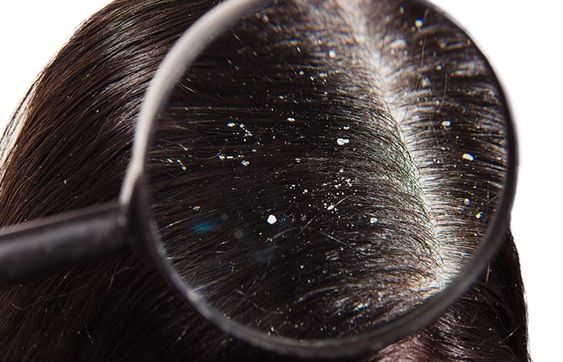Say Goodbye to Dandruff with These Effective Treatments
Say goodbye to pesky dandruff with these tried and tested dandruff treatment methods. From natural remedies to over-the-counter products, we’ve got you covered. Put an end to embarrassing flakes and achieve a healthier scalp with our expert tips and advice.
Dandruff
Dandruff, a common scalp condition characterized by the flaking of dead skin cells, is a source of discomfort and embarrassment for many individuals. While not usually a serious health concern, dandruff can be persistent and affect one’s confidence. The good news is that there are several effective treatments available to combat dandruff and promote a healthier scalp. In this article, we will explore the causes of dandruff and introduce a variety of treatments to help you say goodbye to those pesky white flakes.
Understanding the Causes of Dandruff
Before diving into treatments, it’s essential to understand the underlying causes of dandruff. Dandruff can result from a combination of factors, including:
Yeast Overgrowth: Malassezia, a yeast-like fungus that naturally resides on the scalp, can lead to dandruff when it grows out of control. This overgrowth triggers an inflammatory response, causing excessive shedding of skin cells.
Oily Skin: People with excessively oily skin are more prone to dandruff. The oiliness provides an ideal environment for the Malassezia fungus to thrive.
Dry Skin: On the flip side, dry skin can also contribute to dandruff. When the scalp becomes excessively dry, it may start shedding more skin cells than usual, leading to flaking.
Not Cleaning Hair Regularly: Infrequent shampooing can allow oil and dead skin cells to accumulate on the scalp, contributing to dandruff.
Sensitivity to Hair Products: Some individuals may be sensitive to certain ingredients in hair care products, leading to irritation and dandruff.
Effective Treatments for Dandruff
Now that we have a better understanding of what causes dandruff, let’s explore a range of effective treatments to help you bid farewell to those unwanted flakes.
Use Medicated Shampoos: Antifungal Shampoos: Shampoos containing antifungal agents like ketoconazole, selenium sulfide, or zinc pyrithione can help control the growth of Malassezia.
Tar-Based Shampoos: Shampoos with coal tar can slow skin cell turnover, reducing flakiness. They are particularly effective for individuals with psoriasis.
Regular Shampooing: Maintaining good scalp hygiene is crucial. Regular shampooing helps remove excess oil, dead skin cells, and any built-up products that could contribute to dandruff.
Scalp Massage: Gently massaging your scalp while shampooing can help improve blood circulation and loosen dead skin cells. This promotes a healthier scalp and reduces the likelihood of dandruff.
Tea Tree Oil: Known for its natural antifungal and antibacterial properties, tea tree oil can be an effective home remedy for dandruff. Apply a little amount to your scalp by massaging a few drops into your usual shampoo or carrier oil.
Apple Cider Vinegar: The acidity of apple cider vinegar helps balance the pH of the scalp, making it harder for yeast to thrive. Mix equal parts water and apple cider vinegar, apply to the scalp, and leave it on for a few minutes before rinsing.
Aloe Vera Gel: Aloe vera has soothing and moisturizing properties that can alleviate scalp irritation. Apply aloe vera gel directly to the scalp, leave it on for about 30 minutes, and then wash it off.
Avoiding Certain Hair Products: If you suspect that specific hair care products are contributing to your dandruff, consider switching to milder, hypoallergenic options. Avoid products with harsh chemicals that may irritate the scalp.
Balanced Diet: A healthy diet contributes to overall well-being, including the health of your scalp. Ensure you have an adequate intake of nutrients like zinc, B vitamins, and omega-3 fatty acids, which are essential for a healthy scalp.
Manage Stress: Chronic stress can exacerbate dandruff. Engage in stress-reducing activities such as yoga, meditation, or deep breathing exercises to promote a healthier scalp.
Consult a Dermatologist: If dandruff persists despite trying various home remedies and over-the-counter products, it’s advisable to consult a dermatologist. They can help identify the underlying cause of persistent dandruff and recommend targeted treatments.
Conclusion
Saying goodbye to dandruff involves a combination of good hygiene practices, effective treatments, and, in some cases, lifestyle adjustments. With a variety of options available, from medicated shampoos to natural remedies, individuals can find a solution that works best for their specific needs. Remember that consistency is key, and it may take some time to see noticeable improvements. By taking proactive steps and adopting a holistic approach to scalp care, you can reclaim a dandruff-free, healthy scalp and the confidence that comes with it.

